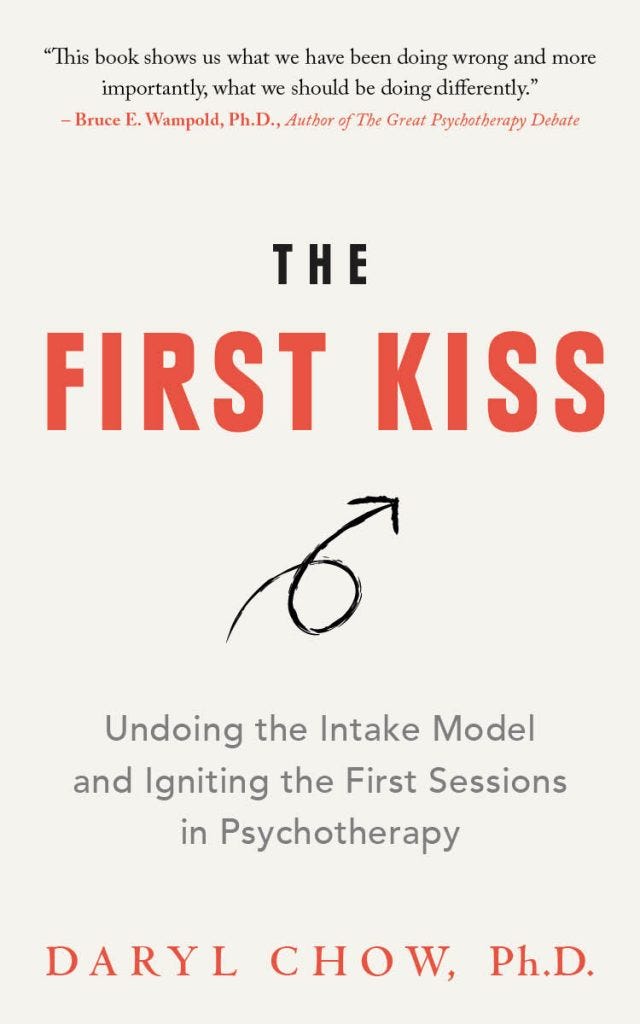ON THE FRONTIER: Frontiers of Psychotherapist Newsletter Jan-Feb'19.

Hi Folks on the Frontier,
In our first newsletter of 2019, I thought I would try something new. I'd provide a sum-up of blogs that were recently released, as well as research articles that I've seen that might be useful for you.
FROM MY DESK
Recent Blog Posts:
You'd see in the first two blog posts of the year, I dive into details about stuff I've been confronted with, and what learnings I've extracted from the experiences.
Private Thoughts: Looking Back In Order to Move Forward (Part I of II)
Personal Learnings: Looking Back In Order To Move Forward (Part II of II)
Here’s the Payoff
“What’s required in many situations is not more facts - we’re inundated already - but a better command of known facts.” ~ John Allen Paulos, Innumeracy.
Research Articles:
1. Therapist and clinic effects in psychotherapy/ a three-level model of outcome variability Nick Firth, David Saxon, William B. Stiles, & Michael Barkham 2019 (Hat tip to Eeuwe Schuckard from NZ for sharing this!)
The authors noted that treatment site effects were larger than therapist effects, but the treate site effects is largely accounted for by clients who are at an SES disadvantage. I don’t think it’s surprising that people who are disadvantaged are less likely (not that they don’t) reap benefits from one on one therapy. In fact, people in countries with more inequalities (US, Aus, Singapore, etc) are more likely to face mental health concerns than in poor countries…To me, the more important thing is how we should design our question to help these folks who are at a systemic disadvantage, beyond just individual therapy, and/or throwing more money at the problem. Money is indeed needed, but if we don’t think beyond the therapy room, we might end up with a “Shirky" Principle (i.e. our attempts at the solution perpetuate the problem).
Sidenote: In our original Supershrinks study, we also did a 3 level MLM w clients nested within therapists, next within treatment sites. We did find treatment site variability too. So we kept the analysis nested throughout as we examined the data.
2. Effects of amount of information on judgment accuracy and confidence Claire I. Tsai et al 2008
I've been highly intrigued by cognitive scientists who study the use of heuristics in decision making. In this paper, echoing similar findings of Paul Slovic's 1974 study of handicappers predicting horseracing winners, it turns out that when we are given more information, our confidence increases, BUT, our accuracy doesn't improve!
See also Herbert Simon's 1955 seminal paper on Satisficing.
This is an important concept to consider, especially in how we conduct our initial sessions. We think that more information is useful (i.e., maximising), but it turns out to be not as helpful as we think.
3. Moving Through the Literature/ What Is the Emotion Often Denoted Being Moved? Janis H. Zickfeld et al 2019
This recent article fascinates me. As the authors argue that Being Moved denotes a distinct emotion, what's striking in several studies is that this emotion is "passive". Certainly makes sense. Even when we think of a word like "passion," this is more above what compels us, or being taken by.
4. The Relationship Between Session Frequency and Psychotherapy Outcome in a Naturalistic Setting (JCCP_David M. Erekson, Michael J. Lambert, and Dennis L. Eggett 2015 )
I was recently talking to someone I was coaching about the impact of making the "dose" of the sessions closer especially at the early stages. This study by Erekson and colleagues, suggests a closer frequency of sessions does improve outcomes.
Here's an exclusive peek into 6 chapters from the book, The First Kiss: Undoing the Intake Model and Igniting First Sessions in Psychotherapy (available now in Amazon and other stores)

Intake Second (Not First)
The following chapters are NOT available in the Kindle preview:
The Perils of an Intake Model
The 4P’s versus The 1P
Avoid TBU (“True But Useless”) Information
Follow The Pain
Follow the Spark

If you have any comments or questions you love for me to blog about, let me know!
You can reach me at info@darylchow.com
Blessings,
Daryl
Daryl Chow, MA. Ph.D. (Psych)
Senior Associate & Trainer, International Center for Clinical Excellence (ICCE);
Endorsed Counselling Psychologist & Board Approved Supervisor (Aus),
Henry Street Centre, Fremantle, W Australia.
Senior Psychologist (on locum),
Institute of Mental Health, Singapore.
You are receiving this because you attended a workshop/consultancy/ supervision with me in recent times, or you are a subscriber to the Frontiers of Professional Development (FPD) blog. I want to keep you up to date on some developments that you will find useful. You might also be interested to check out the previous FPD Newsletters for useful and practical resources. Join our Facebook group to connect. Please spread the love to others who are like you—devoted to your professional development.
Please unsubscribe if this is not for you. The last thing I want if for you to feel spammed. No hard feelings.



